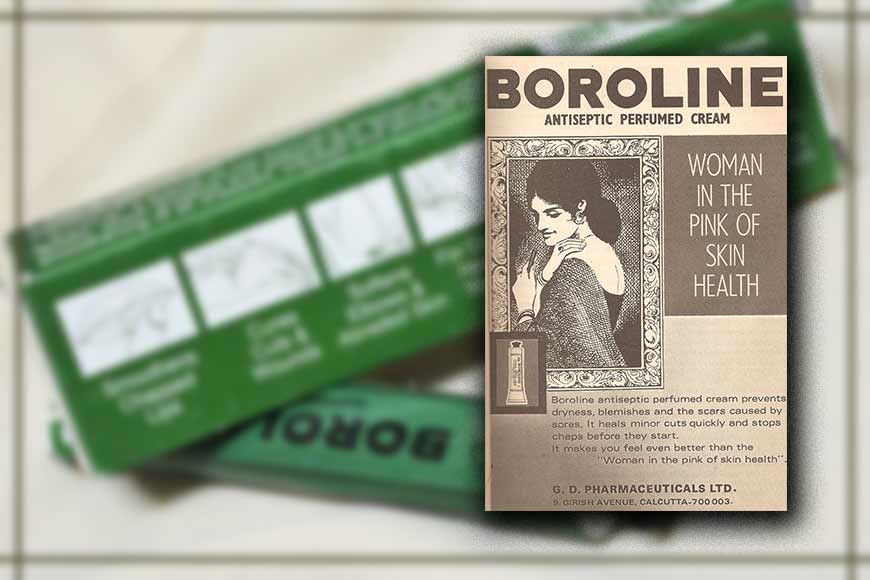'The miracle cure for any ailment' Boroline has a swadeshi link!

S‘hurobhito antiseptic cream Boroline…’ the jingle that we grew up with, radio sets setting to tune Bengal’s very own antiseptic cream in the face of multi-national invasion. And that’s how Boroline entered each and every Bengali home to solve any skin problems, from cuts, swellings, burns to dry skin.
There is no secret formula that lies behind the product born in West Bengal. It is made up of boric acid, zinc oxide, paraffin, perfume and essential oils. Despite this formula being known to all, British companies or multinational have not been able to overpower the popularity of Boroline.
Incidentally, it was famous director Rituporno Ghosh who perhaps understood this importance of Boroline in our daily lives and came up with the tagline ‘Bongo jiboner ongo’. That sublime connect that went beyond profit margins and sales graphs, with an integral nostalgia dating back to times when life was in general simple and beautiful.
Boroline is not just another cosmetic product. It emerged as an icon of self-sufficiency almost ninety years ago in the backdrop of divided Bengal and the tyranny of the British. Introduced by Gour Mohon Dutt during 1929, Dutta’s GD Pharmaceuticals started packaging this cream in a simple, humble green tube without much ado. Apart from being a medical product, it was a tight slap on the face of the British and a means of firm protest against foreign goods and the economic exploitation by the British. Boroline has truly been a witness to turbulent times, exited through various phases and is very much relevant even today in the face of cut-throat competition with fancy cosmetic products. From grandmothers, mothers as well as the highly conscious youngsters petrified of skin problems count on the green tube blindly. Perhaps, this is the reason Boroline has been a cultural archetype for Bengalis.
Also read : Bengali entrepreneur who started business at 13!
But what lies behind the obsession with Boroline? It is highly associated with the dependability of indigenous goods. This home-grown product was available at cheap rates unlike the foreign goods and had multi-faceted benefits to offer to the Bengalis. Most importantly, it was a representation of the nationalism of the Indians and marked a new era for the emerging Bengali middle class.
Boroline is not just another cosmetic product. It emerged as an icon of self-sufficiency almost ninety years ago in the backdrop of divided Bengal and the tyranny of the British. Introduced by Gour Mohon Dutt during 1929, Dutta’s GD Pharmaceuticals started packaging this cream in a simple, humble green tube without much ado.
There is no secret formula that lies behind the product born in West Bengal. It is made up of boric acid, zinc oxide, paraffin, perfume and essential oils. Despite this formula being known to all, British companies or multinational have not been able to overpower the popularity of Boroline. When India got independence on August 15,1947, the company distributed almost 1,00,000 tubes of Boroline to mark freedom in a free country away from the clutches of the British. Through the passage of time, modern and fancy sensibilities have been introduced to the packaging of the product to keep a steady pace with changing. The one thing that has remained constant is the focus on the quality of the product that has not faltered. Be its connection with the legendary past or the fragrant memories of lost times, Boroline has been our constant companion. Irrespective of where a Bengali is travelling or living, in any part of the world, you will find this green tube emitting old-world charm in their bags. No force under the sun has been able to diminish the glory of Boroline and even in times to come, it will always remain, ‘the miracle cure for any ailment’ for Bengalis.










